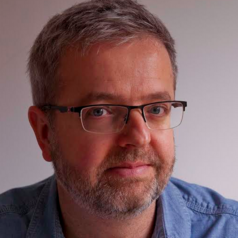|
Artificial intelligence now outperforms human doctors in empathy ratings 87% of the time, according to a recent study. But as Jeremy Howick, an expert on empathic healthcare, argues in his latest article, this alarming statistic reveals more about our broken healthcare system than about AI’s capabilities. “The wonder isn’t that AI appears more empathic,” he writes, “it’s that human healthcare professionals manage any empathy at all.”
Professor Howick explores why exhausted, burned-out doctors trapped in paperwork are losing the empathy battle to machines, and makes a compelling case that we’re heading in exactly the wrong direction. Rather than using AI to handle administrative tasks so doctors can focus on human connection, we risk replacing the very thing that makes healthcare healing: genuine human care.
Also this week: despite claims of a “peaceful” death, science shows that nitrogen gas executions and euthanasia devices cause terrifying suffocation. Read why this method is anything but humane. Plus, discover how Russia and China are using half-truths and emotional manipulation to quietly reshape how we see democracy.
|

|
Clint Witchalls
Senior Health Editor
|
|

Iryna Pohrebna/Shutterstock.com
Jeremy Howick, University of Leicester
AI chatbots are outperforming doctors in empathy ratings. But the real story isn’t about robot superiority, it’s about how we’ve broken healthcare.
|

Erman Gunes/Shutterstock.com
Damian Bailey, University of South Wales; David Poole, Kansas State University; Vaughan Macefield, Monash University
Despite claims of being humane and painless, the use of nitrogen gas for executions and assisted suicide causes air hunger, panic and violent physiological distress.
|

Shutterstock/Bruce Rolff
Aiden Hoyle, Leiden University
Russia and China push content that depicts western states as chaotic, immoral and even just weird.
|
World
|
-
Adriana Marin, Coventry University
Machismo is fighting back hard against female empowerment in Latin America.
-
Jonathan Este, The Conversation
This newsletter was first published in The Conversation UK’s World Affairs Briefing email. Sign up to receive weekly analysis of the latest developments in international relations, direct to your inbox…
|
|
Politics + Society
|
-
Abisola Olawale, University of the West of Scotland
Migration is not merely about moving, but about living two lives.
|
|
Arts + Culture
|
-
Anne Irfan, UCL
Palestine 36 helps illuminate events in modern-day Palestine through recounting key historical events of its past that are often overlooked.
-
William Crozier, Durham University
Richard Fishacre challenged the scientific orthodoxy of his day, and contemporary astrophysics has vindicated his position.
-
Pragya Agarwal, Loughborough University
Thirteen artists with ancestral lands in south Asia, Africa and the Caribbean are subverting the role drawing has played in conquest and colonialism.
|
|
|
|
Education
|
-
Mark Boylan, Sheffield Hallam University
A new oracy framework will support communication skills across the whole curriculum.
|
|
Environment
|
-
Michael Jacobs, University of Sheffield
Many say UN climate summits are pointless. They’re wrong.
-
Kate Whitman, University of Portsmouth; Cressida Bowyer, University of Portsmouth; Steve Fletcher, University of Portsmouth
Plastic pollution is often hidden in plain sight – behind positive “eco” or “recyclable” labels, within supply chains and under the convenience of online shopping.
|
|
Health
|
-
Casper Laing Ebbensgaard, University of East Anglia
A lack of daylight can lead to stress, sleep disruption and cardiovascular disease.
-
Jeremiah Stanley, University of Limerick
Can a mood chemical influence tumour growth?
|
|
Science + Technology
|
-
Claire Hughes, University of Cambridge; George Gillett, University of Cambridge; Luke McGuire, University of Exeter
From digital immersion to Covid, today’s youngsters are growing up in a very different world to their parents.
-
Jamie Thompson, University of Reading
Psychedelic plants and fungi grow all over the planet.
|
|
|
|
| |
|
|
|
|
|